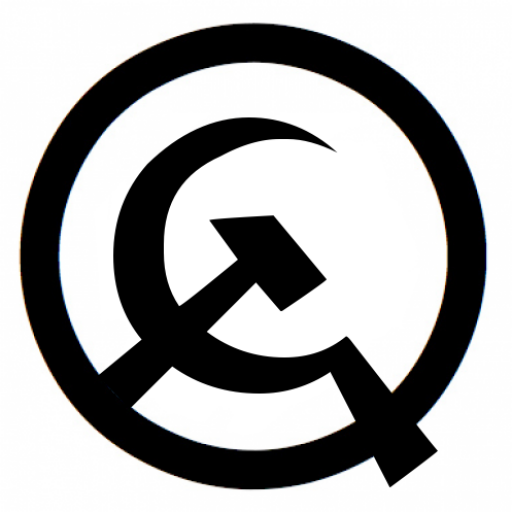Marx is the only major writer in the history of theory whose reputation rests substantially on what he chose not to publish.
— Sheldon S. Wolin, “On Reading Marx Politically” (1983)
We at emancipation are split on the nominal “antipolitical” current in contemporary post-left thought. The feelings that motivate this subcluster of the group represented here share in the disappointment and frustration with the left and politics as whole, and it has therapeutic value to take a rhetorical distance. However, in engaging with our antipolitical wing, it becomes clear that they are no more free from the obvious shortcomings that define the left in the current moment, from theory cultism to hostility towards dissenting opinions. Antipoliticos are leftists in the strongest sense.
One can always ask the key question before proceeding to this debate: why would anyone waste their time arguing about some online micro-tendency that barely exists outside of a couple of blogs and leftbook? Don’t we have better things to do? The vivisection of another left-wing groupscule seems hardly necessary. Two reasons come to mind: one, we all know what it’s like to watch intelligent people slowly slip into the dim and numbing incoherence of internet crankdom. Their good faith engagement gives way to continuous definition shifting and goalpost moving, no matter how politely you push at the limits of their framework. Two, antipolitics highlights a problem endemic to the left beyond the such micro-sectarian concerns: structural antisemitism.
What is Anti-Politics?
This is the million-dollar question. Given the osscalition between a broad and narrow conception of the term, I’m going to divide anti-political theory into two distinct definitions:
- Anti-politics is a description of the relationship between depoliticization(decreasing voter participation, etc.) and the rising tide of populism.
- An interpretation of Marx’s work that reads a primitive version of the base- superstructure divide into Marx’s Critique of Hegel’s Philosophy of Right. The “Social Sphere”/Civil Society is cast as the base, and the entirety of the State/Politics is shoehorned into the superstructure. Among others, this interpretation owes a significant debt to Antonio Gramsci.
The first definition is the most interesting of the two, since it is tackling an obvious sociological reality. The modern resurgence of populism is fueled by a deep frustration with conventional politics on behalf of almost the entire voting population, who act and believe as if their interests have no chance at being represented. Most people in the western world do not like thinking about politics, and when they do, it’s usually pretty hostile towards the people who are in charge. Though this hostility is not particularly coherent, it takes on a populist logic, gravitating towards politicians that seem like outsiders with respect to “business as usual”. This is what most commentators mean by “anti-politics” outside of communist theory.
However, this is problematic to the various Marxian antipolitics cadres that have developed, since they would rather not have something like the election of Trump or the rise of Bernie Sanders associated with The Real Movement. We know what The Real Movement means in terms of Marxology: the workers’ movement against all that exists. Tellingly, the Anti-Political people don’t use terms like ‘proletariat’ or ‘worker’ very often. They talk about “the social sphere” or “civil society”.
But what do they mean by the social sphere? Tad Tietze, the most visible theoretician of Marxian antipolitics¹, will tell you that the social sphere is connected to civil society (think schools, churches, families, communities, etc.) According to him and co-theorist Elizabeth Humphrys at the Left Flank blog, these parts of society are incubators for emancipatory desire, and in that they are in irreconcilable conflict with the “Political Sphere”: the state and anyone who is even vaguely positively disposed towards it.
This is all drawn, supposedly, from Marx’s work. The young Marx’s critique of Hegel is admittedly very interesting work, but in context with Marx’s overall body of thought, we find that it was blip on the map. Something that could be dismissed as Marx just starting to form his worldview, laying into Hegel before developing his conception of proletarian class struggle. In later works, Marx focuses on the proletariat and the inner workings of capitalism rather than the distinction between civil society and the state, although he planned on getting back to state theory after completing Capital. Famously, he didn’t even complete Capital. Marx was the kind of thinker that wrote “every step of the real movement is more important than a dozen programmes” while writing several programs.
Whether or not Tietze’s reading is reflective of where Marx ended up is besides the point. If this reading leads to a more accurate description of the material conditions that define our current moment, than the marxology of it would be a secondary concern. If historical materialism means anything, it’s describing social relations as they actually exist and speculating upon said conditions to pursue human emancipation. If this were to mean admitting that Marx was either blind to or wrong in certain areas, then we should not deter to do so, as we are not prophets interpreting the word of God. This should go without saying, but it bears repeating when among true believers.
But all this interpretation of Marx did for the anti-political faction of emancipation was to avoid the harsh reality of an extremely weak workers’ movement and rotting social institutions. It would seem there’s nothing wrong with the way things are right now in the “Social Sphere”—only issues with the political sphere and in particular The Left™.
The schools may be underfunded and falling apart² ³ ⁴, public spaces that were once the heart of communities may be in ruins⁵, union membership may be extremely low⁶ ⁷, and birth rates may be low⁸, but that’s all in your head. You are just projecting your doomy gloomy leftist worldview on the social sphere because you couldn’t possibly deal with the idea that society would be better off without you political types.
[re: “low birth rates”, the main author wishes to highlight a breakdown in social cohesion, not to promote patriarchal natal-reproductivist ideology —ed. ]
When faced with the material foundations of social impotence, the most that Tietze & Humphrys and their followers will admit is that the institutions that tied society to politics have fallen apart.
While the main thinkers of antipolitics take a more Gramscian view of civil society against the seductions of the “integral state”, their followers have taken to extrapolating the young Marx’s notion of civil society as the other term of an inherently bourgeois antagonism: more of a friend to the state and politics, more of an enemy of the general social sphere. Many of the institutions that compose nominal civil society are literally part of the state—like public schools—or are directly linked to political institutions—like unions and churches.
But once this distinction is made, little coherent social power remains outside of civil society. All this talk of the “social sphere” conceals a precious pro-social optimism that cannot withstand the withering conditions of its existence. We find ourselves in the same prayer for spontaneity that ultimately negated communization, but without the sobriety and self-consciousness of its better wing. While everyone involved with emancipation feels jilted from our awful romance with leftoid sects, some of us still remember the social incoherence that led us to that cliff.
The Band-Aid of Structural Anti-Semitism
Practical need, egoism, is the principle of civil society, and as such appears in pure form as soon as civil society has fully given birth to the political state. The god of practical need and self-interest is money. Money is the jealous god of Israel, in face of which no other god may exist. … The social emancipation of the Jew is the emancipation of society from Judaism.
—a young Karl Marx, “On the Jewish Question” (1843)⁹
Why would a group of intelligent people slowly drift off into this Lovecraftian madness, the theoretical equivalent of non-Euclidean architecture? How does an analysis drawing from a younger, more Hegelian Marx prevent itself from backsliding into Althusser’s suffocating vision of that “integral state” incorporating everything in capitalist society? Surely it would if it was more realistic, for many of the same reasons that left communists felt compelled to migrate “beyond the ultraleft”¹⁰.
We find “structural antisemitism” a convincing diagnosis. Marxian antipoliticos want to shift focus from the weakness of the workers’ movement towards the Left and the state. It was not the Left or the state that fatally weakened the working classes at the point of production, nor was it merely a Mont Pelerin cabal of neoliberals. Marxist analysis roots the strategies of political actors in economic conditions. Anti-Political people, like the rest of the Left, forget that the capitalism is not a conspiracy of capitalists but a system that is self reinforcing, limiting the agency of not only of individuals, but collectives. While this does not mean we are completely ensnared in this horrible web, it does mean that explanations that overestimate the agency of a small elite are misguided at best, and actively harmful at worst.
The (sadly, recently deceased) German marxist Moishe Postone describes this sort of thinking as “structural anti-Semitism”, drawing on the role of Jews as the historical scapegoat for the cold and faceless entity of capital…
[Antisemitism] represents a fetishized form of anticapitalism. That is, the mysterious power of capital — which is intangible, global, and which churns up nations and areas and people’s lives — is attributed to the Jews. The abstract domination of capitalism is personified as the Jews. Antisemitism is thus a revolt against global capital, misrecognized as the Jews¹¹.
In an attempt to avoid the nihilistic conclusions implied by their premises, politicos begin to seem less like “character masks” of capital than capital incarnate. Antipoliticos within emancipation adopted the meme of “lizard people” to refer to political agents and their attendant “lizard brain” ideological thought-worlds, referencing David Icke’s infamous conspiracy theory about the world being run by extraterrestrial reptilians. The Jewish members of (e) have mixed feelings about this usage: it’s too much a gesture towards its antisemitic origins, but an amusing abstraction from them. But what remains clear is that it reproduces the fetishism of the actor that conspiracy theorists level at Jews.
We do not wish to collapse into hyperstructuralism that makes “betrayal” impossible. History is a contingent process with absurd consequences. Stalinists and Social Democrats alike exhibit a distracting hypocrisy that seems to attract lost little lambs and world-weary wolves. Even so, proletarians are as structurally deprived of politics as they are justifiably disinterested in them. Functional representation of interests can only take in the walled-gardens of the salaried company town, whereas any public space in proletarian life fills up with dysfunctional misery.
The big paradox for antipolitics is how the lizards continue to keep their social position amongst the meltdown if they are so weak, and why the spectacular inroads of the social into the political sphere always seems to fizzle. The reemergence of wildcat labor tactics in West Virginia is a glimpse of what a twenty-first century class struggle could look like. If we grant that this is not merely an echo of the past, what would still be needed is a negation of the antipolitical moment in a qualitatively different way than what the political sphere could ever muster: an anti-antipolitics, in that questionably vague Hegelian sense that all marxism relies on for hope. The loss of momentum in “red lizard” circles indicates that the extant left is not likely to play a significant role in its formation, but without its emergence we have no cause for social optimism.


One thought on “To Rip Off a Band-Aid”